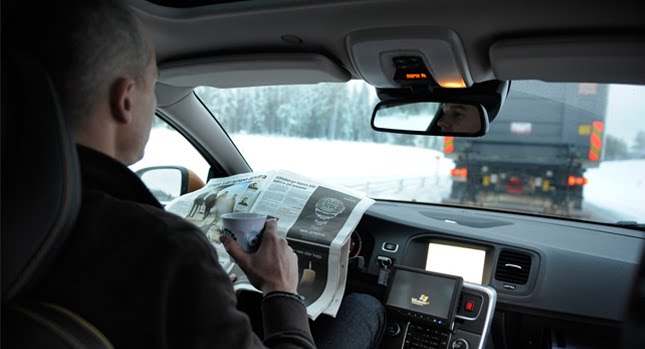Active safety systems are becoming more and more common in modern cars. Features such as lane departure warning or blind spot information systems are meant to let the car’s onboard “clever” electronics help you avoid dangerous situations – and in extreme cases, take over automatically apply full force to the braking system.
However, a recent study from the Massachusetts Institute of Technology (MIT) on driver distraction suggests that there can be too much of a good thing, even in safety-related systems.
The reason is that, as modern cars are overloaded with many electronics that demand the driver’s attention (first-gen iDrive, anyone?), chances are that they may distract the person behind the wheel and instead of prevent cause an accident.
“If a 3-inch light on your dashboard illuminates because you’re too close to the car in front, you may look down at the dashboard”, says MIT AgeLab research scientist Bryan Reimer.
He also stresses that the lack of standardization in those systems increases confusion: “Every manufacturer’s system is different and nobody gets any training before they get behind the wheel.”
Moreover, not all those novel systems are intuitive or user-friendly. Just recently, the MyFord and MyLincoln Touch infotainment system led to Ford Motor Company new vehicles receiving low scores by Consumer Reports, forcing the company to redesign the system’s software.
While many consumers tick most of the boxes concerning their new car’s comfort and safety gizmos, U.S. Department of Transportation officials have a different view on the matter.
“We feel very strongly that just because you can to something in a vehicle, like typing on a keypad while the car is in motion, does that mean that you should do it while driving?”, asks NHTSA administrator David Strickland.
Amy N. Ship, M.D., assistant professor at Harvard Medical School agrees with Strickland, adding that there is evidence that using a cellphone while driving is as risky as DUI.
She asks her patients if they use their cellphones, even with hands-free headphones, while they are behind the steering wheel: “If the patient doesn’t seem to understand the risk, I might ask ‘How would you feel if your surgeon were operating on you while he’s talking on a hands-free phone?’”
Story References: Detroit News




